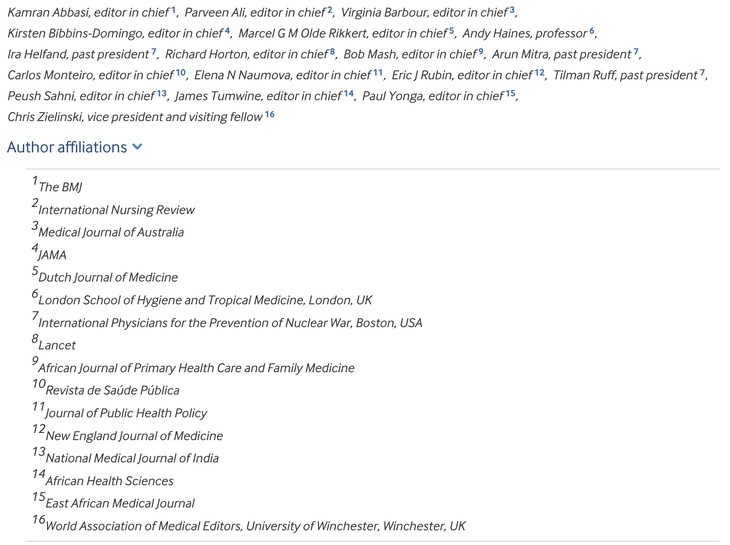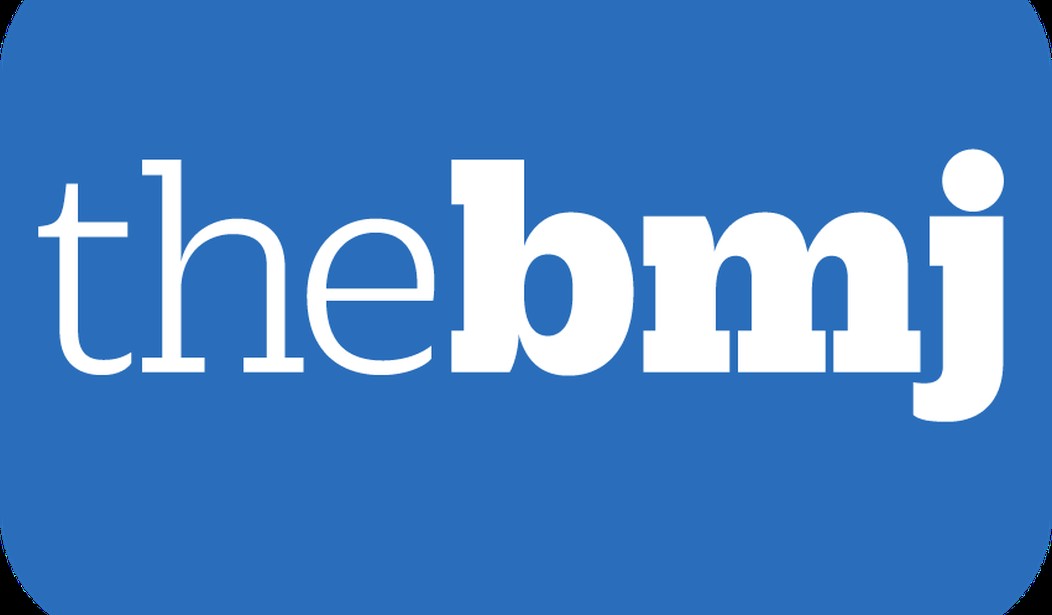Since the medical community did such a bang-up job preventing the COVID pandemic from spreading or killing people, the medical establishment has rightly decided to spread their wisdom into other areas of life and share their wisdom.
Solving the world’s problems is what they do. They understand society, politics, psychology, the economy, and all other aspects of life. They are almost as good at diagnosing and suggesting cures for the flaws of modern life as kindergarten teachers and Neil deGrasse Tyson. They can’t yet hold a candle to Bill Nye the science guy, but they are getting there.
NEW – BMJ and other medical journals warn about a "great and growing" danger of nuclear war in simultaneously published articles.https://t.co/a3SAOkxmIm pic.twitter.com/ChX41nOFn2
— Disclose.tv (@disclosetv) August 4, 2023
That is why I was thrilled to see the British Medical Journal and a host of other similarly prestigious publications simultaneously dedicate their pages that would usually be devoted to disseminating information about biological and medical issues to solving the problem of nuclear war.
If there is anything we have learned in recent years, it is that competence in one area confers competence in all, which is why I ask my extraordinarily competent plumber to determine whether that mole I have is incipient skin cancer.
He says no. Thank God.
The BMJ apparently solicited the editorial which is now so widely distributed, and the authors are a Who’s Who of medical publishers.

Editors from journals published across the world are represented, although for some reason it looks like there was an exclusion of East Asians from the mix. The continent of Asia is represented, though, by India, so apparently this was only anti-Asian sentiment and not anti-continental. Maybe the Chinese government is pro-nuclear war and prevented participation?
The rationale for sharing the wisdom of medical professionals regarding a political problem is obvious: nuclear war is bad for health.
I suppose it is. Hadn’t thought of that before, but come to think of it the vaporization of millions and the poisoning of billions wouldn’t be good for world health. I wonder if the WHO has a stand on nuclear war.
In January 2023, the science and security board of the Bulletin of the Atomic Scientists moved the hands of the doomsday clock forward to 90 seconds before midnight, reflecting the growing risk of nuclear war.1 In August 2022, the UN secretary general, António Guterres, warned that the world is now in “a time of nuclear danger not seen since the height of the Cold War.”2 The danger has been underlined by growing tensions between many nuclear armed states.13 As editors of health and medical journals worldwide, we call on health professionals to alert the public and our leaders to this major danger topublic health and the essential life support systems of the planet—and urge action to prevent it.
Who else but medical professionals would be concerned enough about nuclear annihilation or smart enough to come up with a solution? Thank God such people exist.
It’s a miracle that in the 75 years that nuclear weapons have been possessed by multiple countries none have been used, given the fact that medical journal editors weren’t yet on the case.
Of course this isn’t actually the first time medical professionals have warned that nuclear war might be a bad thing, but the politicians have been too stupid to follow the wise advice of doctors. They clearly haven’t even spent much time thinking about preventing nuclear war, so they need prodding by smart people using clocks to simplify things for the rest of us and dispensing strategic advice.
And such wonderful strategic advice it is, and I am certain that Vlad Putin and Xi will get right on it. Iran will likely hop on the bandwagon too, now that the New England Journal of Medicine and the BMJ advise them to.
We now call on health professional associations to inform their members worldwide about the threat to human survival and to join with the IPPNW to support efforts to reduce the near term risks of nuclear war, including three immediate steps on the part of nuclear armed states and their allies: first, adopt a no first use policy12; second, take their nuclear weapons off hair trigger alert; and, third, urge all states involved in current conflicts to pledge publicly and unequivocally that they will not use nuclear weapons in these conflicts. We further ask them to work for a definitive end to the nuclear threat by supporting the urgent commencement of negotiations among the nuclear armed states for a verifiable, timebound agreement to eliminate their nuclear weapons in accordance with commitments in the non-proliferation treaty, opening the way for all nations to join the Treaty on the Prohibition of Nuclear Weapons.
“We now call on health professional associations to inform their members worldwide about the threat to human survival and to join with the IPPNW to support efforts to reduce the near term risks of nuclear war, including three immediate steps on the part of nuclear armed states and their allies.”
Without health professional associations how would doctors know that nuclear wars are dangerous?
There is something truly inspiring about the open display of arrogance embodied in this editorial. Some of the world’s smartest and most educated people actually thought to come together and spout this drivel as if it is unique wisdom that only medical professionals have, or that they have anything worthwhile to share as a group.
I don’t mean to imply that any individual doctor might not have something useful to contribute to devising nuclear strategy–I am a firm believer that “expertise” is a double-edged sword and that sometimes an outside perspective by a self-taught individual can provide useful or even game-changing insights–but that is not the claim being advanced here. Rather it is that medical professionals as a class, and journal editors in particular, have a special insight due to their professional education and experience.
That’s ridiculous on its face. I can easily imagine a doctor also being a good mechanic or plumber, but I don’t seek out random doctors to fix my Lexus or unclog my kitchen sink. This arrangement works out well for everyone.
I can’t deny that COVID lockdowns left society much better off–thanks to them COVID deaths rarely occurred, our economy was strengthened, mental health was improved, partisanship diminished, social trust skrocketed, and educational attainment for school children attained heights never imagined.
Oh, wait. Maybe the opposite of everything predicted by these geniuses happened, and the world in 2023 is much worse off than that of 2019. Millions died despite these policies, and the society was riven by discord.
Modern medicine can be miraculous at times. But even in the realm of doctors’ specific competence they often do tremendous harm. Iotragenic diseases (treatment-induced diseases and injuries) are estimated to be the third leading cause of death. That number is from a Johns Hopkins study, not some crackpot.
We know that during COVID a large number of deaths came from the policy of intubating patients, making things much worse for many. Oops.
I don’t reject modern medicine because of this, but it puts a slightly different spin on the omnicompetence claims of medical professionals. It turns out that admitting ignorance is often wiser than pretending competence.
Ask any detransitioner.
I can’t claim to have excessive confidence in our politicians’ ability to avoid nuclear war, but I can confidently say that the commitment to do so is very high and enormous resources have been expended in ensuring that a nuclear exchange will never occur. That the problem still exists is due to the complex incentives and the possibility of unpredictable cascading events unintentionally leading to a difficult-to-predict outcome.
It certainly isn’t due to inattention or a blasé attitude. These “professionals” have no idea of what they are talking about, and have simply beclowned themselves.









Join the conversation as a VIP Member